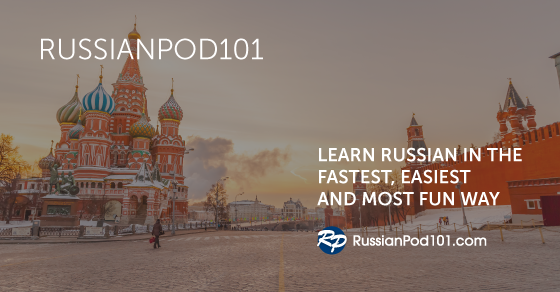بلاگ
-

Giving Simple Directions in Russian – Focus
Hi everyone. I am Anastasia Komarova. Всем привет. (Vsem privet.) Меня зовут Анастасия Комарова. (Menya zovut Anastasiya Komarova.) Welcome to the Russian Whiteboard Lessons. So today in this lesson you will learn how to ask and give simple directions in Russian. Let’s get started. Поехали. (Poyekhali.) And now let’s look at the dialogue. When I read I want you to pay attention to prepositions that show direction. Find these prepositions and see how it’s used in the dialogue. Imagine that you are lost or can’t figure out how to find a building, place or some object you need. Где находится библиотека? (Gde nakhoditsya biblioteka?) Where is the library? Библиотека находится перед школой. (Biblioteka nakhoditsya pered shkoloy.) The library is in front of the school. The question. Где находится библиотека? (Gde nakhoditsya biblioteka?) The answer. Библиотека находится перед школой. (Biblioteka nakhoditsya pered shkoloy.) Библиотека, the library, находится is перед, in front of, школой, the school. Библиотека, library, school, школа. Sometimes the verb can be omitted. It will sound a little informal. Now let’s look at the sentence pattern. This pattern was the structure that our dialogues followed. Place находится direction. Place is direction. For example, например, библиотека находится direction. The library is direction. The words that we use for asking and giving simple directions. Находится, лежит, is. -

Advanced Audio Blog 3 S3 #1 – Russian Classical Music Begins with Glinka
learn about one of the founders of Russian classical music
Source link -

Core Words Lesson #17 — Quiz Review
Unlock In-Depth Explanations & Exclusive Takeaways with Printable Lesson Notes
Unlock Lesson Notes and Transcripts for every single lesson. Sign Up for a Free Lifetime Account and Get 7 Days of Premium Access.
-

Italy’s weird Towns: Discovering La Scarzuola, Colobraro and Calcata
When travelers dream of Italy, they often think of the romantic canals of Venice, the Colosseum in Rome, or the rolling hills of Tuscany. But hidden among the better-known gems are some truly bizarre, magical, and mysterious places. If you’re looking to get off the beaten path, explore the eccentric, or just love a good …
The post Italy’s weird Towns: Discovering La Scarzuola, Colobraro and Calcata appeared first on Sos Italian – Learn Italian online.
-

How to Learn Dutch New Words the Pain-Free Way
Tired of having to stop and pick up a dictionary every time you come across a new word? Well, there is a pain-free way to look up words if you’re learning with our learning system. It’s called the audio dictionary. But first, if you don’t yet have access to our language learning system, sign up for a free lifetime account right now. Just click the link in the description to get your free lifetime account. What is the audio dictionary? The audio dictionary is our free on-site dictionary with audio pronunciation. And you’ll find it in the vocabulary drop-down menu or by hovering over the search icon in the top right corner of the site. Just type or paste in any word you want to look up. The dictionary gives you the meaning, transliteration, and audio pronunciation. Best of all, it’s available to all users. So if you’re a member, you already have access. How to look up words without sidelining your learning. Now, let’s talk about how to look up words without sidelining your learning. I don’t know about you, but when I’m learning, stopping everything to grab a dictionary every single time I find a new word can get frustrating, especially if there are a lot of new words. That’s where the audio dictionary comes in. So how does it work? Well, if you’re taking a lesson on the site, you can just hover over the search icon, type or paste in the word, and get the meaning without having to stop or leave the lesson. How to save and master words for good. We know it’s easy to forget the new words you learn, and that’s why the audio dictionary connects with your word bank. So you can send words from the dictionary to the word bank. Think of the word bank as your extended brain. It’s where you can save keywords and phrases for later. And how it works is while you’re reviewing words, just select the ones you want to save and click add selected words to word bank at the bottom. And it’s not just for storage. You can use the word bank to review your words with a slideshow or even create printable vocabulary lists, which is pretty cool. Just export your words as a PDF or click on the printer friendly option and print. So if you want to learn the language and get access to these learning tools and our learning system, sign up for a free lifetime account right now. Just click the link in the description to get your free lifetime account. -

Talking About an Injury — Video Conversation
Welcome to Daily Russian Conversations. In this series, you’ll learn practical Russian phrases for use on social media and in everyday life. Pастянул лодыжку (Rastyanul ladyshku) Боевая травма? (Bayevaya travma?) Может в больницу? (Mozhet, v bal’nitsu?) Это полуболь, у тебя еще есть вторая нога. (Eta polubol’, u tebya yeshche yest’ ftaraya naga.) Боль в ноге делает мир мрачным. (Bol’ v nage delayet mir mrachnym.) Let’s review the key vocabulary. мир (mir) world, peace травма (travma) injury лодыжка (lodizhka) ankle больница (bol’nitsa) hospital нога (noga) leg мрачный (mrachnyi, nmrachnyy) dark, gloomy, bleak боевой (bayevoy) battle; fighting боль (bol’) pain Let’s review the key vocabulary. Do you remember how to say ‘world, peace’? мир (mir) And how to say ‘injury’? травма (travma) What about ‘ankle’? лодыжка (lodizhka) Let’s try ‘hospital’! больница (bol’nitsa) Now let’s see if you remember how to say ‘leg’! нога (noga) Another one. What about ‘dark, gloomy, bleak’? мрачный (mrachnyi, nmrachnyy) Do you remember how to say ‘battle; fighting’? боевой (bayevoy) What about ‘pain’? боль (bol’) Let’s practice. After the sound, read the phrases out loud. Ready? Pастянул лодыжку (Rastyanul ladyshku) Боевая травма? (Bayevaya travma?) Может в больницу? (Mozhet, v bal’nitsu?) Это полуболь, у тебя еще есть вторая нога. (Eta polubol’, u tebya yeshche yest’ ftaraya naga.) Боль в ноге делает мир мрачным. (Bol’ v nage delayet mir mrachnym.) -

Eight Poetic Italian Words You’ll Fall in Love With
Italian is filled with words that express emotions, images, and states of being. These are more than just vocabulary items—they’re little windows into the soul of Italian culture. In this article, I’ll explore eight poetic Italian words that carry beauty, emotion, and history. If you’re learning the language or simply appreciate its expressive power, these …
The post Eight Poetic Italian Words You’ll Fall in Love With appeared first on Sos Italian – Learn Italian online.
-

Core Words: How to Say “Cold Medicine,” “Coffee Table,” and More!
Hi everybody, my name is Thomas. Welcome to the 2000 Core Dutch Words and Phrases video series! Each lesson will help you learn new words, practice, and review what you’ve learned. Ok! Let’s get started! First is… WORD 1 (NORMAL SPEED) verkoudheidsmedicijn (NORMAL SPEED) “cold medicine” (NORMAL SPEED) verkoudheidsmedicijn (SLOW) verkoudheidsmedicijn (NORMAL SPEED) “cold medicine” (NORMAL SPEED) een dosis verkoudheidsmedicijn (NORMAL SPEED) “serving of cold medicine” (SLOW) een dosis verkoudheidsmedicijn WORD 2 (NORMAL SPEED) voetsteun (NORMAL SPEED) “footrest” (NORMAL SPEED) voetsteun (SLOW) voetsteun (NORMAL SPEED) “footrest” (NORMAL SPEED) Ik rust mijn benen op de voetsteun voor mijn stoel. (NORMAL SPEED) “I rest my legs on the footrest sitting in front of my chair.” (SLOW) Ik rust mijn benen op de voetsteun voor mijn stoel. WORD 3 (NORMAL SPEED) nachtkastje (NORMAL SPEED) “nightstand” (NORMAL SPEED) nachtkastje (SLOW) nachtkastje (NORMAL SPEED) “nightstand” (NORMAL SPEED) Ik heb een foto van mijn vrouw op mijn nachtkastje. (NORMAL SPEED) “I keep a picture of my wife on my nightstand.” (SLOW) Ik heb een foto van mijn vrouw op mijn nachtkastje. WORD 4 (NORMAL SPEED) koffietafel (NORMAL SPEED) “coffee table” (NORMAL SPEED) koffietafel (SLOW) koffietafel (NORMAL SPEED) “coffee table” (NORMAL SPEED) Hou je voeten van de koffietafel alsjeblieft. (NORMAL SPEED) “Please keep your feet off the coffee table.” (SLOW) Hou je voeten van de koffietafel alsjeblieft. WORD 5 (NORMAL SPEED) bank (NORMAL SPEED) “sofa” (NORMAL SPEED) bank (SLOW) bank (NORMAL SPEED) “sofa” (NORMAL SPEED) woonkamerbank (NORMAL SPEED) “living room sofa” (SLOW) woonkamerbank WORD 6 (NORMAL SPEED) stoel (NORMAL SPEED) “chair” (NORMAL SPEED) stoel (SLOW) stoel (NORMAL SPEED) “chair” (NORMAL SPEED) Wanneer je in een comfortable stoel zit, studeer je makkelijker. (NORMAL SPEED) “It is easier to study when you are sitting in a comfortable chair.” (SLOW) Wanneer je in een comfortable stoel zit, studeer je makkelijker. WORD 7 (NORMAL SPEED) eettafel (NORMAL SPEED) “dinner table” (NORMAL SPEED) eettafel (SLOW) eettafel (NORMAL SPEED) “dinner table” (NORMAL SPEED) De eettafel is gedekt. (NORMAL SPEED) “The dinner table is set.” (SLOW) De eettafel is gedekt. WORD 8 (NORMAL SPEED) tafel (NORMAL SPEED) “table” (NORMAL SPEED) tafel (SLOW) tafel (NORMAL SPEED) “table” (NORMAL SPEED) Aan de keukentafel doen we ons huiswerk en spelen we spelletjes. (NORMAL SPEED) “We do homework and play games at the kitchen table.” (SLOW) Aan de keukentafel doen we ons huiswerk en spelen we spelletjes. WORD 9 (NORMAL SPEED) studeren (NORMAL SPEED) “study” (NORMAL SPEED) studeren (SLOW) studeren (NORMAL SPEED) “study” (NORMAL SPEED) samen studeren (NORMAL SPEED) “study together” (SLOW) samen studeren WORD 10 (NORMAL SPEED) kelder (NORMAL SPEED) “basement” (NORMAL SPEED) kelder (SLOW) kelder (NORMAL SPEED) “basement” (NORMAL SPEED) donkere kelder (NORMAL SPEED) “dark basement” (SLOW) donkere kelder PRACTICE/REVIEW Let’s review. Respond to the prompts by speaking aloud. First, you will hear a word or phrase in English. Respond in Dutch, then repeat after me, focusing on pronunciation. Ready? (Do you remember how to say “cold medicine?” Review 1) (3) (2) (1) verkoudheidsmedicijn (1) verkoudheidsmedicijn (And how to say “footrest?” Review 2) (3) (2) (1) voetsteun (1) voetsteun (What about “nightstand?” Review 3) (3) (2) (1) nachtkastje (1) nachtkastje (Do you remember how to say “coffee table?” Review 4) (3) (2) (1) koffietafel (1) koffietafel (Let’s try “sofa!” Review 5) (3) (2) (1) bank (1) bank (What about “chair?” Review 6) (3) (2) (1) stoel (1) stoel (Now, let’s see if you remember how to say “dinner table!” Review 7) (3) (2) (1) eettafel (1) eettafel (Another one! What about “table?” Review 8) (3) (2) (1) tafel (1) tafel (Do you remember how to say “study?” Review 9) (3) (2) (1) studeren (1) studeren (And finally, do you remember how to say “basement?” Review 10) (3) (2) (1) kelder (1) kelder Well done! See you next time! Tot ziens.

